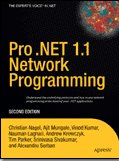In mathematical logic and computer science, lambda calculus, also written as λ-calculus, is a formal system for function definition, function application and recursion.
An anonymous function is a function (or a subroutine) defined, and possibly called, without being bound to an identifier. Anonymous functions originate in the work of Alonzo Church in his invention of the lambda calculus.
In C# lambda expression can be written as:
x=>x+1;
Here left part is paramter where as right is expression. The same can be written as:
int func(int x){ return x+1; } // Some examples - x , y => x* y; () => x; // valid but not useful! Lambda expression & Lambda statement blockx => 2 * x; // this is a expression y => {return 2*x; } // this is a statement blockDelegate & Lambda FuncFollowing delegate is same as Func lambda expression:<int> funcDelegate = delegate(int x) { return x + x; }; Func<int> lambda = x => x + x; Console.WriteLine(funcDelegate(10)); Console.WriteLine(lambda(10));Example: Lambda expressions takes a string & returns void// above lambda can also be written as: <int> lambda = (int x) => x + x;// A delegate that takes a string and returns void public delegate void OutputToConsole(string arg); static void Main(string[] args) { OutputToConsole op = a => { Console.WriteLine(a); }; op("Hello, World"); }Example: Lambda – takes nothing returns void// A delegate that takes no arguments and returns void public delegate void OutputHelloToConsole(); static void Main(string[] args) { OutputHelloToConsole op = () => { Console.WriteLine("Hello, World"); }; op(); }





